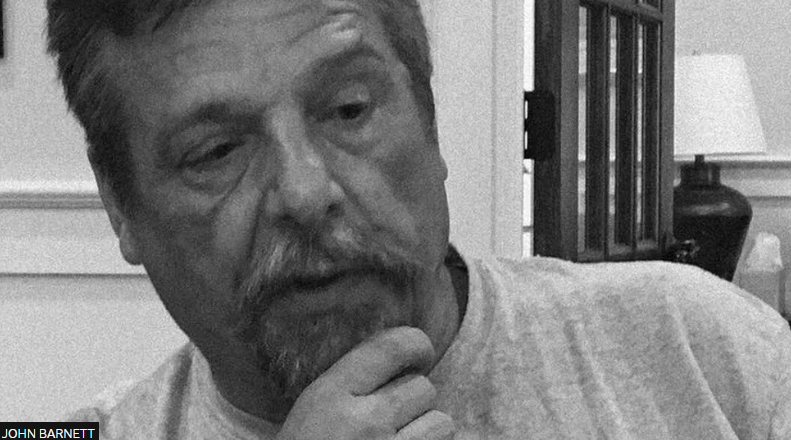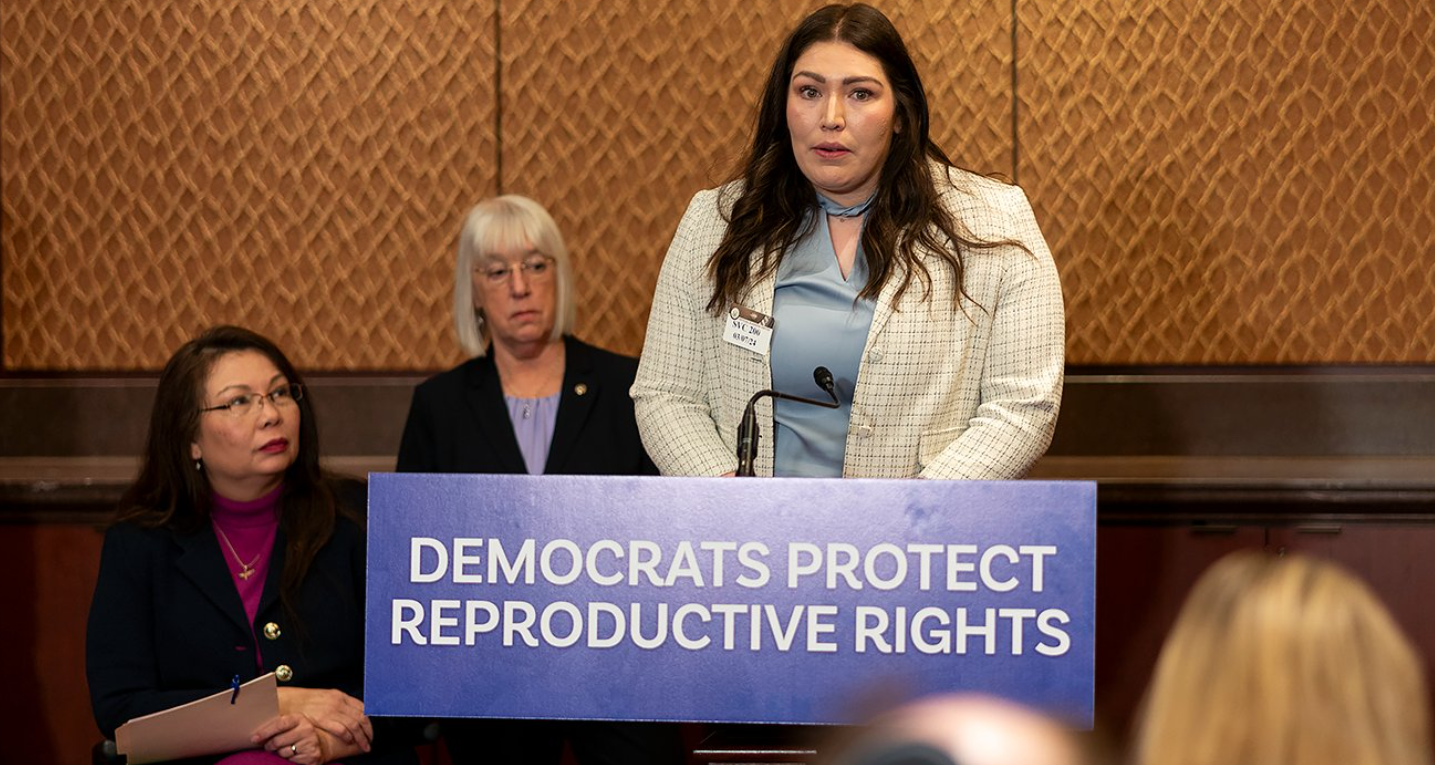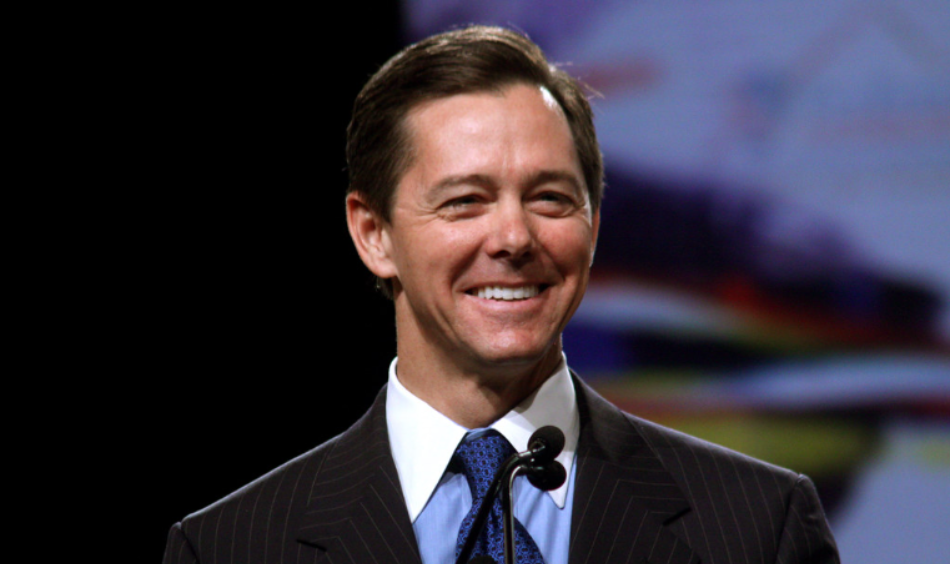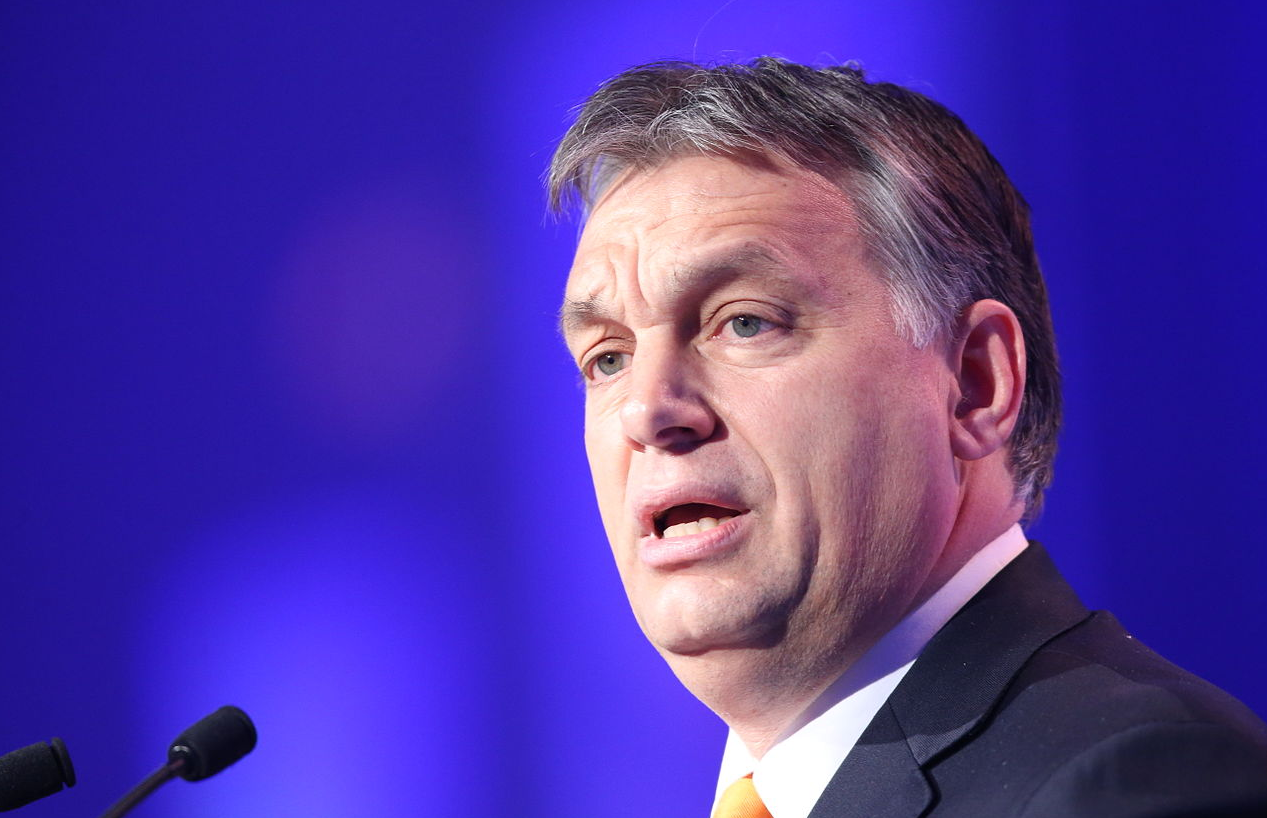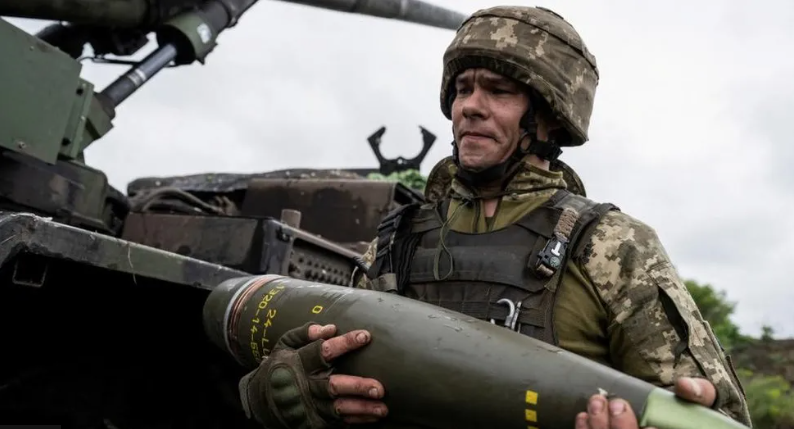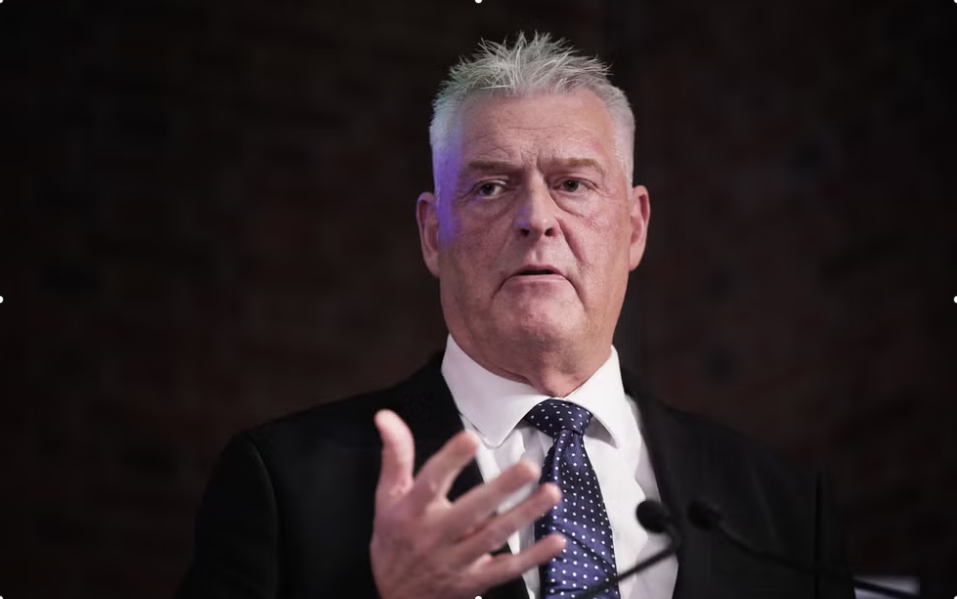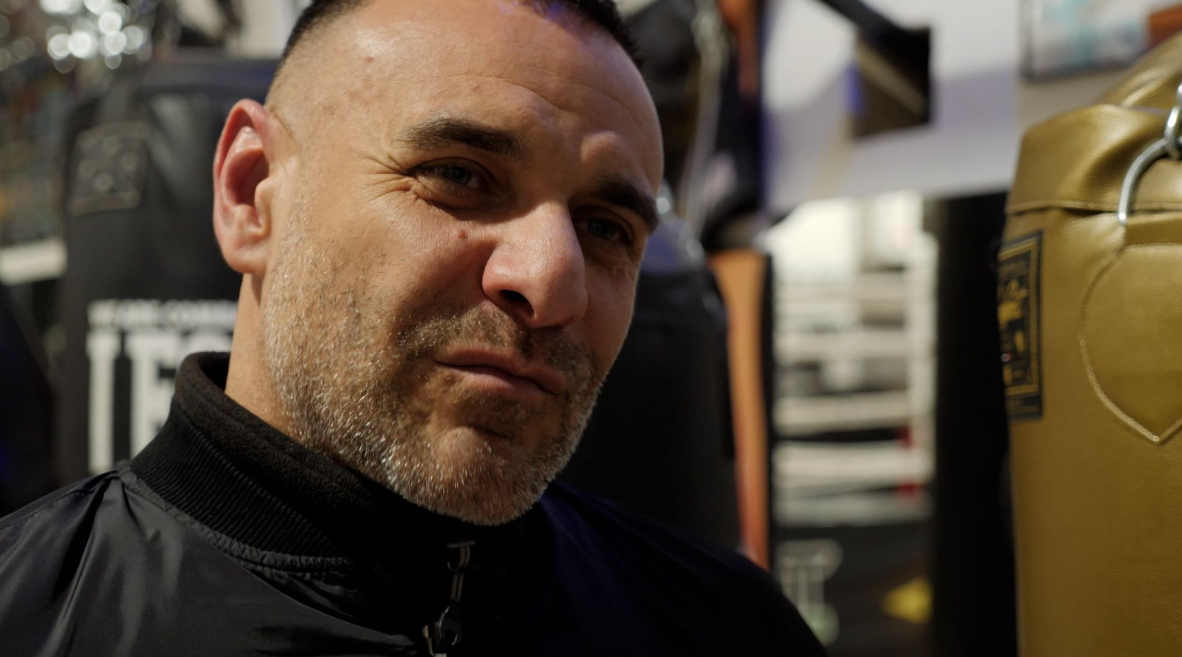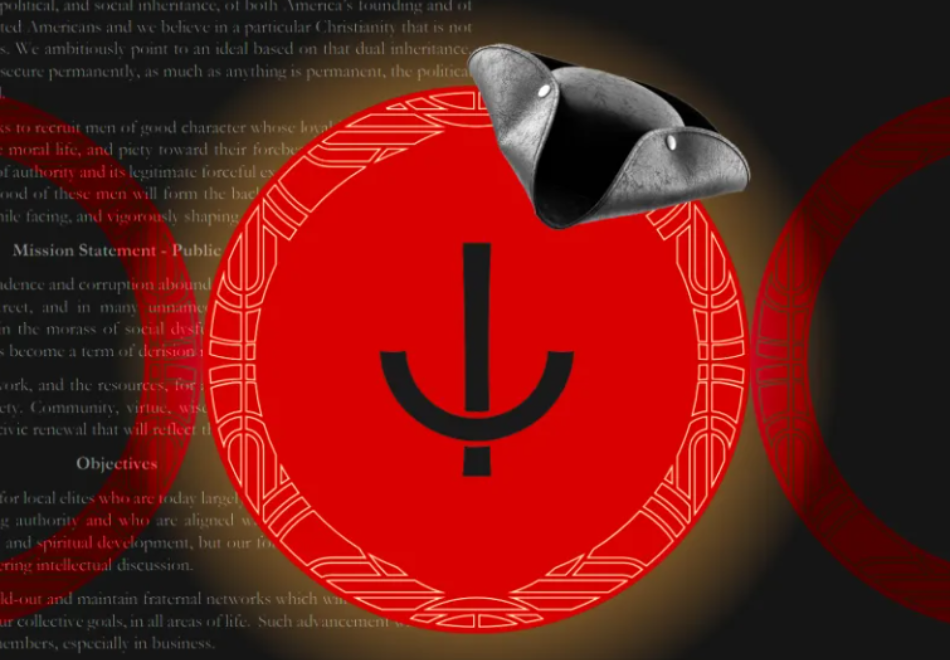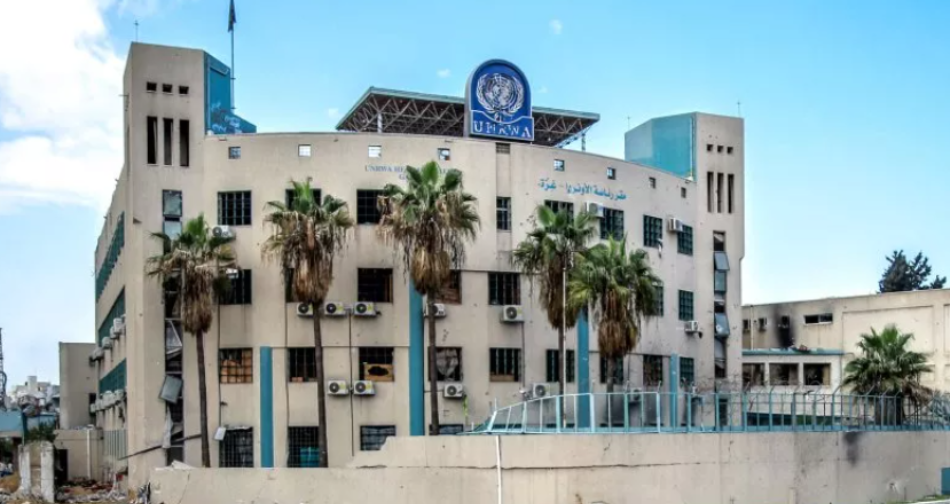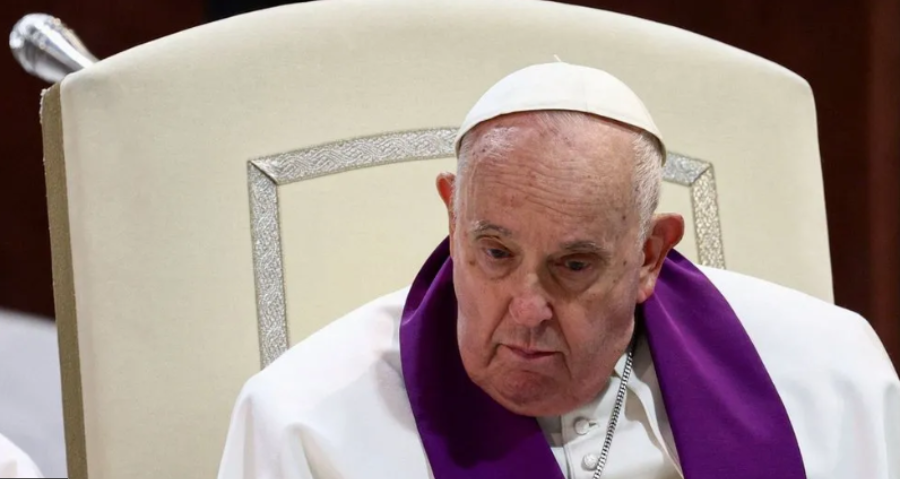-
Posts
10,072 -
Joined
-
Last visited
Content Type
Events
Forums
Downloads
Quizzes
Gallery
Blogs
Everything posted by Social Media
-
The death of John Barnett, a former Boeing employee known for raising concerns about the company's production standards, has sent shockwaves through the aviation industry. Barnett, who had worked for Boeing for 32 years before retiring in 2017, was found dead from a "self-inflicted" wound on March 9th, just days after giving evidence in a whistleblower lawsuit against the company. Barnett's testimony in the lawsuit, along with his previous statements to the media, highlighted serious safety concerns at Boeing's North Charleston plant, where the 787 Dreamliner is manufactured. He alleged that under-pressure workers were fitting sub-standard parts to aircraft on the production line and raised alarms about problems with oxygen systems, which could compromise passenger safety. Despite Boeing's denials, a 2017 review by the Federal Aviation Administration (FAA) upheld some of Barnett's concerns, confirming the presence of "non-conforming" parts in the factory and ordering remedial action. However, Barnett continued to pursue legal action against the company, accusing them of retaliating against him for raising safety issues. His sudden death, while in Charleston for legal interviews related to the lawsuit, has raised questions and prompted expressions of sadness from both Boeing and Barnett's lawyer. The circumstances surrounding his death are under investigation by local authorities. Barnett's passing comes at a time when both Boeing and its suppliers are facing increased scrutiny over production standards. A recent incident involving an emergency exit door on a Boeing 737 Max has further heightened concerns, leading to a six-week audit by the FAA that uncovered multiple instances of alleged failure to comply with manufacturing quality control requirements. The tragic loss of John Barnett underscores the importance of whistleblower protections and the need for rigorous oversight in the aviation industry to ensure passenger safety. 12.03.24 Source
-
Abortion is shaping up to be a central issue in the upcoming 2024 presidential election, with Democrats and Republicans both mobilizing their bases and voters expressing strong opinions on the matter. Former President Trump, recognizing the potency of the abortion rights message, has attempted to shift attention away from the issue by stoking fears around immigration. However, this strategy faces significant hurdles given the heightened awareness and mobilization among voters concerned about abortion rights. Since the 2022 Dobbs ruling, which curtailed federal protections for abortion, voters have shown a strong willingness to mobilize in defense of abortion rights. Trump's recent suggestion of a compromise involving a ban on abortion after 16 weeks of pregnancy has not gained traction, as most voters continue to support the right to abortion. Furthermore, recent rulings by conservative courts, such as the Alabama Supreme Court equating embryos with babies, have sparked backlash and underscored the urgency of protecting reproductive rights. The issue of abortion has galvanized Democrats, with many citing it as a driving factor in their voting decisions. Polls indicate widespread support for keeping abortion legal, with voters expressing concern about efforts to restrict access to reproductive healthcare. In states across the country, activists are pushing to enshrine abortion access as a constitutional right, further elevating the issue's prominence in the upcoming election. Despite attempts to shift the narrative, Trump's focus on immigration as a rallying point for his base may face challenges in a landscape where abortion rights are a top priority for many voters. With conservative courts and state legislatures taking steps to restrict reproductive rights, Democrats are mobilizing to defend abortion access and hold elected officials accountable on this crucial issue. As the 2024 election approaches, the battle over abortion rights is likely to remain a central and highly contentious aspect of the political landscape. 12.03.24 Source
-
Ralph Reed's Faith & Freedom Coalition is gearing up for a robust political spending spree in the upcoming 2024 election cycle, with a primary objective of securing Donald Trump's return to the White House. The conservative-leaning organization plans to allocate a staggering $62 million towards activities such as registering and mobilizing evangelical voters, utilizing direct voter contact strategies, and distributing literature across churches, particularly in battleground states. This significant investment highlights the steadfast alliance between the white evangelical community and Trump, despite ongoing legal challenges, including a forthcoming trial related to hush money payments. As Trump faces financial constraints compared to President Biden's well-funded campaign, outside groups like Reed's are poised to play a crucial role in bolstering his candidacy. With the Republican National Committee also facing financial limitations, conservative organizations are rallying behind Trump, recognizing his status as the presumptive nominee. Faith & Freedom's voter outreach efforts are strategically focused on newly registered evangelical voters and those identified as low-propensity voters. Leveraging its extensive network of staff, volunteers, and church liaisons, the organization aims to emphasize key issues such as abortion, Israel, and education policy, drawing a clear contrast between Trump and Biden. Reed's longstanding influence in conservative circles, coupled with Faith & Freedom's organizational capacity, underscores the significant role these groups play in shaping political outcomes. Despite Trump's equivocation on certain issues, particularly regarding a national abortion ban, Reed reaffirms his organization's unwavering support for the former president, citing Trump's pro-life stance as a cornerstone of evangelical backing. As the 2024 election cycle unfolds, Faith & Freedom Coalition's substantial investment signals the enduring impact of evangelical voters on American politics and underscores the pivotal role of conservative advocacy groups in shaping electoral outcomes. 12.03.24 Source
-
The Conservative party's largest donor, Frank Hester, has stirred controversy after making derogatory remarks about Diane Abbott, Britain's longest-serving black MP. Hester, who has contributed £10 million to the Tories over the past year, allegedly expressed sentiments suggesting animosity towards all black women upon seeing Abbott on television. During a meeting, Hester reportedly stated that observing Abbott on TV made him "want to hate all black women" and even went as far as suggesting she "should be shot." Although Hester later attempted to clarify his remarks, claiming they were not motivated by gender or race, the comments have raised serious questions about workplace conduct and professionalism. Hester, a businessman from West Yorkshire, heads the healthcare technology firm, the Phoenix Partnership (TPP), which has garnered substantial contracts from the NHS and government entities, totaling over £400 million since 2016. Despite his significant financial contributions to the Conservative party, Hester's remarks have cast a shadow over his role in bankrolling the party's general election campaign. In response to the backlash, TPP issued a statement emphasizing Hester's condemnation of racism and attempts to apologize to Abbott directly for any offense caused. However, the incident has reignited discussions about workplace culture at TPP, with reports of a stringent environment characterized by exacting rules and abrupt dismissals of high-achieving graduates. Amidst the controversy, Hester's lawyers have defended his character, highlighting his positive contributions to the workplace, including generous perks and remuneration. Nonetheless, former TPP employees have voiced concerns about turnover rates and alleged mistreatment, prompting scrutiny into the company's operations. While Hester's donation to the Conservative party underscores his support for the political establishment, his comments and the subsequent fallout serve as a reminder of the complexities surrounding workplace behavior and the responsibility of donors to uphold inclusive values. 12.03.24 Source
- 162 replies
-
- 14
-

-

-

-

-
Italian police have apprehended three Palestinians on terrorism charges, alleging their involvement in plotting attacks in an undisclosed country. The trio, residing approximately 75 miles outside of Rome in L'Aquila, have been accused of establishing a cell affiliated with the Al Aqsa Martyrs' Brigades. The Al Aqsa Martyrs' Brigades, recognized as a terrorist organization by Israel, the EU, and the US, is a coalition of armed militants previously associated with the Palestinian Fatah movement. Law enforcement authorities have leveled charges against the three individuals for criminal conspiracy related to terrorism or subversion of democratic order, offenses that carry sentences of up to 15 years in prison. According to police statements, the suspects engaged in proselytism, propaganda, and allegedly planned various attacks, including suicide missions, targeting civilian and military installations abroad. Furthermore, one of the arrested individuals is subject to an Israeli warrant, with Italian authorities currently evaluating an extradition request for his return. Italian Interior Minister Matteo Piantedosi commended the arrest of the "three dangerous terrorists," underscoring Italy's perpetual vigilance against extremism and radicalization. The incident highlights the ongoing efforts of law enforcement agencies to preemptively address threats posed by individuals affiliated with terrorist groups, safeguarding both national and international security interests. 12.03.24 Source
-
The perception of the COVID-19 pandemic's end in America is split, with half of the country believing it's over while the reality paints a different picture. Although official measures like free COVID tests and isolation guidelines for infected individuals have been discontinued, the virus continues to pose a significant threat, claiming hundreds of American lives weekly and straining healthcare resources. The recent decision to halt the distribution of free COVID tests and the relaxation of isolation guidelines by the Centers for Disease Control and Prevention (CDC) created a contrasting image of the pandemic's status. While some view these actions as signs of the pandemic's conclusion, others recognize that COVID-19 remains a persistent danger, especially as hospitals reintroduce mask mandates amid seasonal spikes in cases. Public health experts are divided on how to approach the virus, with some advocating for treating it as a unique threat while others argue for assimilating it with other respiratory diseases. This ambiguity reflects the broader uncertainty surrounding the definition of a pandemic and the criteria for its onset and conclusion. The pandemic's conclusion is evident in the relaxation of stringent measures like lockdowns and mask mandates, as well as in the public's shifting perception of risk. However, this transition also signifies a diminished capacity for health officials to implement preventive measures, exacerbated by public fatigue and skepticism. Despite the easing of restrictions, many Americans continue to take personal precautions, and efforts to combat COVID-19 persist, including vaccine updates and research into long-term symptoms. Vulnerable populations, such as the immunocompromised, still perceive COVID-19 as a significant threat and feel neglected by the relaxation of isolation guidelines. The World Health Organization (WHO) maintains that COVID-19 remains a pandemic, cautioning against complacency due to the potential for new variants and surges in cases. Wastewater surveillance data and hospitalization rates indicate ongoing viral circulation, particularly in the South. Politically, the pandemic continues to shape debates and legislation, with ongoing inquiries into the pandemic response and partisan disputes hindering efforts to bolster preparedness for future outbreaks. While there is a natural inclination to return to pre-pandemic norms, experts emphasize the need for continued vigilance and adaptation in light of COVID-19's enduring presence. Understanding that the virus is part of the new normal and adjusting behavior accordingly is crucial in navigating the evolving landscape of public health. 12.03.24 Source
-
Hungarian Prime Minister Viktor Orban's recent remarks about former US President Donald Trump's stance on providing aid to Ukraine have sparked controversy and raised concerns about the future of the conflict between Ukraine and Russia. Orban stated that Trump, if re-elected as US president, would not allocate any funds to support Ukraine's fight against Russia's invasion. This assertion came after Orban's meeting with Trump in Florida, where the former president allegedly pledged to end the war "within 24 hours" without providing specific details. Orban's open backing of Trump in the 2024 White House race underscores his long-standing alliance with the former US leader. During their meeting, Trump praised Orban, calling him a "fantastic" leader. Orban claimed that Trump possesses "pretty detailed plans" on ending the Russia-Ukraine war, although he did not elaborate on the specifics of these plans. The Hungarian prime minister's refusal to meet with current US President Joe Biden during his visit to the US is notable, especially considering the tradition of visiting foreign leaders to engage with both former and current counterparts. Orban's close ties with Russian President Vladimir Putin have drawn criticism from fellow EU leaders, particularly regarding his reluctance to provide military assistance to Ukraine and his skepticism about Ukraine's ability to withstand Russia's military might. Orban's comments have raised concerns among EU leaders about the potential consequences of a second Trump presidency, including a reduction in US military and financial aid to Ukraine and NATO. This concern is exacerbated by the stalled $95 billion foreign aid bill, which includes $60 billion in military assistance to Ukraine, due to Republican opposition in the US Congress. The ongoing conflict between Ukraine and Russia has seen recent gains by Russian forces in eastern Ukraine, highlighting the critical need for Western support, particularly from the US, to bolster Ukraine's defense capabilities. However, the reluctance of some Republican lawmakers, influenced by Trump, to approve aid to Ukraine without additional funding for US border security further complicates the situation. Overall, Orban's remarks and his alignment with Trump underscore the complexities surrounding the Ukraine-Russia conflict and the geopolitical implications of US foreign policy decisions under different administrations. The future of US support for Ukraine remains uncertain, leaving Ukraine vulnerable to Russian aggression and underscoring the importance of international cooperation in addressing global security challenges. 12.03.24 Source
-
Unveiling the Harsh Realities of Sexual Offence Prosecution: Insights from a Groundbreaking Report The recent release of a comprehensive report shedding light on the Crown Prosecution Service's (CPS) handling of rape cases in England and Wales has sent shockwaves through the legal and advocacy communities. Delving deep into CPS case files and supplemented by interviews with various stakeholders, including CPS staff, police officers, and independent sexual violence advisers (ISVAs), the report paints a distressing picture of the prevailing attitudes towards victims of sexual offences. The findings reveal disturbing instances of CPS lawyers trivializing cases of teen sexual abuse, employing victim-blaming rhetoric, and displaying skepticism towards non-conventional sexual practices. Such archaic attitudes are disheartening, considering the concerted efforts made in recent years to address shortcomings in the criminal justice system's response to sexual violence. The government's 2020 rape review, prompted by a significant decline in rape prosecutions despite a rise in reported cases, ushered in Operation Soteria—a groundbreaking initiative aimed at reforming the handling of rape cases. While progress has been made, with increased police referrals and a renewed focus on investigating predatory behavior, challenges persist, particularly in the courts. Long delays and a burgeoning backlog of rape cases threaten to undermine the strides made in improving the system's efficiency and effectiveness. To address these issues, calls have been made for the establishment of specialized rape courts and investigation units within police forces, alongside initiatives to attract and retain talent within the CPS. However, the road to comprehensive reform extends beyond the realms of law enforcement and prosecution. Greater investment in research into the judiciary, court procedures, and rehabilitation programs is essential to achieve genuine "end-to-end" improvement in the handling of sexual offence cases. The report's revelations, while troubling, underscore the importance of transparency and accountability in addressing systemic failures. By exposing these shortcomings, stakeholders can work towards meaningful reform and ensure that survivors of sexual violence receive the support and justice they deserve. Nevertheless, financial constraints remain a significant obstacle to progress, with CPS staff highlighting the detrimental impact of austerity measures on resources and staffing levels. While increased funding is crucial, transformative change also requires a broader societal shift towards greater gender equality and prevention of sexual violence. Ultimately, while the criminal justice system plays a vital role in addressing sexual offences, true progress lies in preventing such atrocities from occurring in the first place. As we strive for a more just and equitable society, it is imperative that we confront these challenges head-on and work collaboratively towards lasting change. 12.03.24 Source
-
In a dramatic political upheaval, Lee Anderson, the MP for Ashfield, has delivered a devastating blow to Rishi Sunak's Conservative government by defecting to the Reform party. This move comes hot on the heels of Anderson's suspension by the Tories for his controversial comments regarding London Mayor Sadiq Khan, whom he accused of being under the influence of "Islamists." At a press conference announcing his defection, Anderson stood firm in his refusal to apologize for his remarks, doubling down on his criticism of Khan and expressing his desire to reclaim the country he believes has been lost. Despite facing criticism for his decision to join Reform, Anderson emphasized that he had undertaken considerable soul-searching before making the move. Interestingly, despite having previously supported legislation that would require MPs switching parties to face immediate by-elections, Anderson has ruled out triggering such a vote in his constituency. This decision has raised eyebrows and sparked debate about the ethical implications of his defection. Richard Tice, leader of Reform, welcomed Anderson into the party fold, praising him as a "champion of the Red Wall." Anderson's defection adds weight to Reform's growing influence, particularly following the party's strong showing in recent by-elections. Anderson's political journey has been marked by controversy, from his resignation as deputy chairman of the Tory party to his suspension for refusing to retract his comments about Islamists. Despite these challenges, Anderson remains a formidable figure in British politics, representing Ashfield since 2019 and contributing to Boris Johnson's Conservative victory. However, Anderson's move to Reform has not been without criticism. Mayor Sadiq Khan's camp has condemned Anderson's remarks as racist and Islamophobic, calling into question the Conservative Party's response to his comments. Anderson's defection to Reform mirrors similar moves by Tory MPs to UKIP in the past, signaling a growing discontent within the Conservative ranks. As Reform continues to gain momentum, its impact on the British political landscape remains to be seen. 12.03.24 Source
-
Unraveling the Enigmatic World of Football Ultras: A Glimpse into the Life of a Leader In the frenzied realm of Italian football, where passion runs deep and rivalries are fierce, there exists a breed of fans known as "ultras" - a subculture steeped in loyalty, camaraderie, and, at times, violence. Marco Ferdico, the leader of Inter Milan's diehard ultra group, offers a glimpse into this intriguing world, where celebrity status mingles with a penchant for confrontation. Amidst the fervor of a high-stakes match between Inter Milan and AS Roma, Marco cuts an imposing figure as he navigates the crowd, exchanging greetings with fellow fans and exuding an aura of authority. Clad in rain-soaked attire adorned with the insignia of his ultra group, Marco embodies the essence of ultra fanaticism - a fervent devotion to the club and its cause. For Marco and his brethren, being an ultra transcends mere fandom; it is a way of life characterized by unwavering loyalty and a willingness to defend their territory at all costs. As he shares anecdotes of violent confrontations and clashes with rival factions, Marco offers insight into the complex dynamics that underpin the ultra movement. However, the allure of the ultra lifestyle is not without its controversies. Linked to incidents of extreme violence, racism, and organized crime, ultras have garnered notoriety across Europe's football landscape. From the streets of Rome to the stadiums of Milan, the specter of violence looms large, leaving a trail of chaos and destruction in its wake. Yet, amidst the chaos and discord, Marco and his compatriots remain steadfast in their allegiance to the ultra cause. Despite facing scrutiny and condemnation from law enforcement and society at large, they stand unwavering in their conviction, viewing their actions as a testament to their unwavering loyalty to their club and comrades. But as the specter of violence continues to cast a shadow over the world of football, questions linger about the future of the ultra movement. Can the allure of camaraderie and loyalty outweigh the perils of violence and extremism? And, perhaps most importantly, is there a path towards reconciliation and redemption for those ensnared in the tumult of ultra fanaticism? As Marco reflects on his journey as an ultra leader, one thing remains clear: the world of football ultras is a complex and enigmatic realm, where passion and loyalty collide with violence and controversy. And as long as the allure of the ultra lifestyle persists, the saga of Marco and his brethren will continue to captivate and intrigue, offering a window into a world unlike any other. 12.03.24 Source
-
Inside the Veiled World of SACR: Unraveling the Agenda of a Right-Wing Christian Brotherhood In the corridors of power and influence across America, a clandestine network of elite, right-wing Christian men quietly operates, shaping the future of the nation according to their radical vision. This group, known as the Society for American Civic Renewal (SACR), has long lurked in the shadows, its existence shrouded in secrecy until recent revelations peeled back the curtain on its inner workings. At the heart of SACR lies a mission that sounds like the stuff of conspiracy theories: to engineer a Christian government in the United States, potentially through a seismic event dubbed as a "national divorce." The criteria for membership into this exclusive club are stringent, demanding unwavering loyalty to a trinity of ideals: staunch Christianity, unadulterated Americanism, and a commitment to regressive social values. SACR's membership roster reads like a who's who of America's privileged elite: wealthy, predominantly white men who occupy positions of influence in business, politics, and academia. These are not fringe loners or militia enthusiasts; they are educated, devout traditionalists who see themselves as guardians of a bygone era, fighting to reclaim a mythical golden age of American greatness. The group's origins trace back to conversations among a select few at prestigious institutions like the Claremont Institute, where the seeds of SACR were sown amidst discussions of constitutionalism and the perceived erosion of traditional values. Charles Haywood, a University of Chicago-educated attorney and self-proclaimed "maximum leader," emerged as a central figure in SACR's inception, incorporating the organization and laying the groundwork for its expansion. But SACR is more than just a gathering of like-minded men; it is a meticulously structured network with chapters scattered across the country, each operating under a veil of secrecy. From Dallas, Texas, to Coeur d'Alene, Idaho, SACR chapters convene regularly, discussing politics, promoting traditional marriage, and strategizing ways to advance their agenda. Central to SACR's ethos is its exclusionary nature, which extends beyond religious lines to encompass gender and ideology. Women are barred from membership, relegated to traditional roles within the household, while non-Christian and non-Trinitarian individuals are deemed unworthy of inclusion. SACR's vision of America is steeped in patriarchal authority, with men expected to assert dominance in both the private and public spheres. Yet, despite its covert nature and controversial beliefs, SACR insists that it operates within the bounds of legality and constitutional norms. Its leaders deny accusations of subversion, portraying the organization as a benign civic group committed to preserving America's founding principles. However, critics view SACR as a dangerous echo chamber, perpetuating regressive ideologies and seeking to impose its narrow worldview on a diverse and pluralistic society. The group's fixation on a return to antiquated norms and its exclusionary practices raise concerns about its potential to exacerbate social divisions and undermine democratic values. In the wake of recent revelations, SACR finds itself thrust into the spotlight, its once-hidden agenda exposed to public scrutiny. Yet, for its members, the mission remains unchanged: to forge a new America in their image, one where Christian values reign supreme and dissent is silenced. As the nation grapples with profound challenges and societal upheaval, the influence of SACR looms large, its shadowy presence casting a pall over the future of American democracy. Whether it represents a beacon of hope for some or a harbinger of division and discord for others, one thing is certain: the story of SACR is far from over, and its impact on the course of American history is yet to be fully realized. 12.03.24 Source
-
Upholding Unity: UK Government Allocates £117m to Protect Muslim Institutions Amid Rising Tensions In a move to fortify the security of mosques, Muslim faith schools, and community centers across the United Kingdom, the government has unveiled a significant investment of over £117 million in taxpayer funds. This initiative, announced by Home Secretary James Cleverly, aims to safeguard these institutions from potential hate attacks and discrimination, instilling a sense of reassurance and confidence within the Muslim community. The allocation of this substantial budget over the next four years underscores the government's commitment to combating anti-Muslim sentiments and preventing any form of religious-based hostility. The decision follows heightened concerns regarding escalating tensions fueled by the Israel-Hamas conflict, which has reverberated across global communities, including those in the UK. Cleverly emphasized that such acts of hatred have no place in British society and underscored the government's resolve to stand in solidarity with Muslim citizens. "We will not let events in the Middle East be used as an excuse to justify abuse against British Muslims," he asserted, reiterating Prime Minister Boris Johnson's unequivocal support for the Muslim population. The comprehensive funding package encompasses various security measures, including the installation of CCTV cameras, alarms, and fencing, designed to bolster the physical protection of mosques, faith schools, and community centers. By enhancing security infrastructure, the government seeks to send a clear message that acts of intolerance and discrimination will not be tolerated. This announcement builds upon previous government initiatives aimed at addressing religious-based prejudice and hate crimes. Notably, a £70 million package was allocated to bolster the security of Jewish groups, reflecting the government's commitment to fostering inclusivity and safeguarding diverse communities. The timing of this funding announcement, coinciding with the start of Ramadan, holds particular significance, symbolizing a gesture of support and solidarity with the Muslim community during a period of spiritual significance. The allocation of resources underscores the government's recognition of the unique challenges faced by Muslim institutions and the imperative of ensuring their safety and protection. By earmarking a substantial budget, the government aims to provide tangible reassurance to Muslim communities across the UK, signaling its unwavering commitment to upholding unity and combating religious-based discrimination. Furthermore, the funding allocation reflects a broader societal commitment to promoting tolerance, understanding, and mutual respect among diverse religious and cultural groups. As the UK navigates complex geopolitical dynamics and addresses internal challenges, initiatives such as this serve as a beacon of hope and solidarity, reaffirming the nation's values of inclusivity and compassion. In the face of escalating tensions and divisive rhetoric, the government's proactive stance in safeguarding Muslim institutions sends a powerful message of unity and cohesion. By investing in the security and well-being of all communities, the UK reaffirms its commitment to fostering a society built on principles of equality, respect, and social harmony. 12.03.24 Source
-
Rethinking UNRWA: Charting a New Course for Palestinian Aid In the aftermath of the Israel-Hamas conflict, the debate surrounding the effectiveness and integrity of the United Nations Relief and Works Agency (UNRWA) has reached a crescendo. The recent revelations of UNRWA workers' involvement in the October 7 attacks have reignited calls for a fundamental reassessment of the agency's role in the Israeli-Palestinian conflict. Established in 1949 to provide aid to Palestinian refugees in the wake of Israel's independence, UNRWA has faced mounting criticism over the years. While its initial mandate was noble—to alleviate the suffering of Palestinian refugees and facilitate their eventual resettlement—UNRWA's approach has been fraught with controversy and inefficacy. One of the primary criticisms leveled against UNRWA is its expansive definition of refugee status, which includes not only those displaced during the 1948 Arab-Israeli conflict but also their descendants. This perpetual refugee status, unique among global refugee crises, has led to a ballooning refugee population that shows no signs of abating. From the initial 700,000 refugees in 1948, the number has now swelled to 5.9 million, exacerbating the cycle of dependency and perpetuating a sense of victimhood among Palestinians. Moreover, UNRWA's mandate has evolved beyond humanitarian aid to encompass education, with the agency operating hundreds of schools across the region. While education is undoubtedly crucial for the empowerment and development of refugee communities, UNRWA's curriculum has come under scrutiny for promoting anti-Israeli sentiment and perpetuating the narrative of Palestinian victimhood. Textbooks used in UNRWA schools have been found to delegitimize Israel's right to exist and propagate narratives of martyrdom and armed resistance, further fueling tensions in the region. The revelations of UNRWA employees' complicity in terrorist activities have further tarnished the agency's reputation. Reports of UNRWA staff members participating in Hamas-led attacks and providing logistical support to terrorist groups have raised serious concerns about the agency's accountability and neutrality. The IDF's disclosure of a Hamas command center located beneath UNRWA's Gaza headquarters has cast doubt on UNRWA's claims of impartiality and independence. In light of these revelations, the need for a comprehensive reassessment of UNRWA's mandate and operations has never been more pressing. While the agency has undoubtedly provided vital assistance to Palestinian refugees over the years, its role in perpetuating the conflict and exacerbating tensions cannot be overlooked. It is time for the international community to consider alternative approaches to Palestinian aid that prioritize accountability, transparency, and effectiveness. This may involve transitioning UNRWA's responsibilities to other humanitarian organizations or restructuring the agency to ensure greater oversight and accountability. Furthermore, regional stakeholders, including Arab nations and the Palestinian Authority, must take greater responsibility for the welfare and development of Palestinian refugees. Instead of relying solely on external aid organizations, these stakeholders should work towards long-term solutions that address the root causes of displacement and promote sustainable development in Palestinian communities. While the path forward may be fraught with challenges, the current impasse presents an opportunity to rethink the humanitarian paradigm in the Israeli-Palestinian context. By reassessing UNRWA's role and exploring alternative approaches to Palestinian aid, the international community can pave the way for a more equitable and sustainable future for all stakeholders involved. 12.03.24 Source
-

Israel is at War - General discussion (pt3)
Social Media replied to Social Media's topic in The War in Israel
Please take note of the OP point one: "Latest developments and discussion of events in the Israel-Hamas War." This is not a history topic or a topic on Russia, Putin or Ukraine -

Survivors sue UNRWA USA for funding Hamas terrorism
Social Media posted a topic in The War in Israel
Legal Battle Unveiled: Survivors Take on UNRWA USA for Alleged Role in Hamas Terrorism Funding In a landmark legal move, survivors of the October 7 Hamas massacre have taken direct legal action against UNRWA USA, the American fundraising arm of the United Nations Relief and Works Agency for Palestine Refugees in the Near East (UNRWA). The lawsuit, filed in the U.S. District Court for the District of Delaware, represents the first direct legal challenge against UNRWA for its purported involvement in funding terrorism. The plaintiffs, represented by the National Jewish Advocacy Center, Inc. (NJAC), are seeking damages and a declaration that UNRWA USA violated federal anti-terror laws. The legal action comes amidst mounting diplomatic tensions over UNRWA's alleged ties to terrorism, particularly in light of recent revelations implicating the organization's employees in the Hamas attack and subsequent warfare in Gaza. According to court documents, UNRWA USA, a registered 501(c)(3) charity, has provided substantial financial support to UNRWA, totaling $3.8 million to date. The complaint alleges that UNRWA USA knowingly facilitated terrorism by operating a "terrorist-financing scheme" in violation of federal law. The lawsuit asserts that UNRWA's facilities were allegedly used as command and control centers by Hamas militants during the October 7 massacre. David Finger, a partner at Finger & Slanina, emphasized the importance of holding corporations accountable for facilitating violence and terrorism. He stated, "Delaware should not tolerate its corporations being used to facilitate violence, terror, and savagery." The plaintiffs include survivors of the October 7 attack, relatives of those killed, and displaced families whose homes were destroyed in the violence. Their legal action aims to hold UNRWA USA accountable for its alleged role in funding terrorism and to seek justice for the victims of the massacre. Attorney David Schoen, representing the plaintiffs, condemned UNRWA's perceived immunity from legal consequences, stating, "Disgracefully, UNRWA has been granted immunity and so it acts with impunity." He emphasized the importance of cutting off funding to UNRWA as a step towards justice for the victims. Ben Schlager, senior counsel at Goldfeder & Terry, highlighted the significance of the case in addressing the intersection between humanitarian aid and terrorism. He stated, "The underwriting of terrorism by NGOs under the guise of philanthropy and altruism is a particularly pernicious form of material support." The legal action against UNRWA comes in the wake of a bombshell Israeli intelligence report revealing the alleged involvement of UNRWA employees in the Hamas attack. The report prompted several countries, including the United States and Germany, to suspend contributions to UNRWA totaling over $438 million. Arsen Ostrovsky, CEO of the International Legal Forum, underscored the need to hold UNRWA USA accountable for its alleged role in funding terrorism. He stated, "UNRWA has become an inseparable arm of Hamas and a systematic incubator of hate, incitement, and terror." Mark Goldfeder, director of the National Jewish Advocacy Center, emphasized the rarity of charities being used to finance terrorism. He stated, "Charities generally do good work, which is why they often fly under the radar. But on some very rare occasions, a so-called 'charity' is really a front to help finance an international terrorist plot that kills thousands of innocent people." The legal battle against UNRWA USA represents a pivotal moment in efforts to address the alleged intersection between humanitarian aid and terrorism financing. As the case unfolds in the U.S. court system, it is likely to draw significant attention to the accountability of organizations involved in providing aid to conflict-affected regions. 11.03.24 Source -
Advancements in Mammoth De-Extinction: A Journey Towards Genetic Resurrection Efforts to resurrect the woolly mammoth, a magnificent creature that roamed the Earth during the ice age, are gaining momentum as scientists make strides in genetic engineering. Spearheaded by Harvard University geneticist George Church and his team at Colossal Biosciences, the ambitious project aims to bring back the mammoth, not merely as a relic of the past, but as a living, breathing hybrid that could potentially contribute to the restoration of Arctic ecosystems. The journey towards mammoth de-extinction has been long and arduous, with significant hurdles to overcome. However, recent developments offer a glimmer of hope. Church and his colleagues have successfully reprogrammed cells from an Asian elephant, the mammoth's closest living relative, into an embryonic state, marking a significant milestone in the project. These induced pluripotent stem cells (iPSCs) hold immense potential, as they can be manipulated in the lab to develop into various elephant cell types, paving the way for genetic modifications necessary to create a mammoth-like hybrid. The genetic alterations required to endow an Asian elephant with mammoth-like traits, such as a woolly coat and adaptations for cold climates, are complex and multifaceted. Yet, with the aid of advanced cellular research techniques, the possibilities are expanding. Additionally, studying elephant iPSCs offers insights into the creatures' unique biology, including their resistance to cancer, which could have implications for conservation efforts. While the prospect of resurrecting mammoths is tantalizing, it comes with ethical and logistical challenges. The use of endangered animals as surrogates for gestation raises ethical concerns, and the success rate of cloning techniques remains uncertain. Nonetheless, Colossal Biosciences remains steadfast in its pursuit, with plans to employ existing cloning methods and eventually develop alternative gestation methods that eliminate the need for surrogates. The genetic blueprint for mammoth resurrection is drawn from the analysis of ancient DNA extracted from mammoth fossils, providing crucial insights into the species' distinctive traits. By harnessing genetic editing technologies, scientists aim to recreate a mammoth that not only resembles its extinct counterpart but also possesses desirable attributes, such as resistance to cold and absence of tusks to deter poaching. Beyond the realm of scientific curiosity, the resurrection of mammoths holds potential ecological significance. Proponents argue that reintroducing mammoths to Arctic landscapes could mitigate permafrost thaw by mimicking the ecological role they once played. However, skeptics question the feasibility of this proposition, highlighting the complex interplay of environmental factors in the rapidly changing Arctic. While mammoth de-extinction remains a work in progress, the advancements made thus far underscore the power of genetic engineering to reshape our understanding of extinction and conservation. As scientists inch closer to realizing this extraordinary feat, the implications for biodiversity and ecosystem restoration are profound. Whether mammoths will once again roam the Earth remains to be seen, but the journey towards their resurrection is a testament to human ingenuity and the enduring quest to unravel the mysteries of the past. 11.03.24 Source
-
Ukraine Rejects Pope's "White Flag" Comment: A Clash of Perspectives The recent call by Pope Francis for Ukraine to negotiate an end to its war with Russia and raise the "white flag" has sparked a vehement response from Ukrainian officials and citizens alike. The Pope's remarks, made in an interview with Swiss broadcaster RSI, have been met with criticism and condemnation, with Ukraine's foreign minister and President Volodymyr Zelensky dismissing the comments as unacceptable. In the interview, the Pope was quoted as advocating for courage in negotiation when faced with adversity, using the metaphor of the "white flag" to symbolize a willingness to seek peace. However, Ukrainian officials were quick to reject any suggestion of surrender, emphasizing their unwavering commitment to their national flag of blue and yellow. President Zelensky, in his address, commended the efforts of Ukrainian chaplains on the frontline and underscored the resilience of the Ukrainian people in the face of aggression. He emphasized the importance of solidarity and support in defending the nation's sovereignty and values. The Pope's remarks have drawn comparisons to historical contexts, with Ukraine's ambassador to the Vatican likening them to appeasement strategies employed during World War Two. Polish Foreign Minister Radek Sikorski questioned the Pope's balance in urging courage only from Ukraine while neglecting to address Russian aggression. Social media platforms have been inundated with criticism from Ukrainians, including religious leaders, highlighting the sensitivity of the issue and the deep-seated emotions it has evoked. In response to the backlash, a Vatican spokesman clarified that the Pope's intention was to advocate for negotiation as a means of achieving peace, not capitulation. The Pope's remarks were aimed at promoting dialogue and reconciliation, rather than endorsing surrender. The timing of the Pope's comments coincides with a critical juncture in Ukraine's struggle against Russian aggression. Despite efforts to defend its territory, Ukraine faces ongoing challenges, including recent territorial losses and obstacles in securing international support. In Washington, a proposed bill to provide substantial financial aid to Ukraine has faced obstacles in Congress, highlighting the complexities of international diplomacy and the divergent interests at play. As Ukraine continues to resist Russian incursions and navigate the complexities of diplomacy, the Pope's remarks serve as a reminder of the importance of dialogue and negotiation in resolving conflicts. However, they also underscore the need for sensitivity and understanding of the unique challenges faced by Ukraine in its struggle for sovereignty and peace. 11.03.24 Source
- 1 reply
-
- 1
-

-
In a powerful and poignant open letter, over 50 survivors of terrorist attacks in the UK, including those affected by the Manchester Arena bombing and the London Bridge attacks, are urging politicians to refrain from equating British Muslims with extremism. Led by Survivors Against Terror, a network representing individuals impacted by acts of terror, the signatories emphasize the need to isolate extremists and terrorists from the broader Muslim community, rather than perpetuating divisive rhetoric. Among the signatories are individuals who have endured unimaginable loss, such as Rebecca Rigby, widow of soldier Lee Rigby, and Paul Price, who tragically lost his partner, Elaine McIver, in the Manchester Arena attack. Their collective voice echoes a resounding message: the fight against terrorism must not fuel discrimination or prejudice against innocent Muslims. The survivors stress that they are acutely aware of the threat posed by extremism, having experienced its devastating consequences firsthand. They assert that combatting this threat should be a top national priority, but it must be done in a way that does not demonize or marginalize law-abiding Muslims. In recent weeks, concerns have been raised over political rhetoric that conflates Islam with extremism, potentially exacerbating tensions and fostering anti-Muslim sentiment. Instances such as former Conservative party deputy chair Lee Anderson's remarks about London mayor Sadiq Khan and former home secretary Suella Braverman's comments have drawn criticism for their perceived Islamophobia. Paul Price, a survivor of the Manchester Arena attack, emphasizes the importance of unity in the face of terrorism. He asserts that terrorists thrive on division and polarization and urges politicians to focus on what unites communities rather than sowing further discord. Rebecca Rigby echoes this sentiment, emphasizing that her husband Lee would not have wanted his death to be used to fuel hatred against Muslims. She emphasizes the need to differentiate between peaceful Muslims and the extremist minority, underscoring that tackling terrorism requires unity rather than division. Darryn Frost, who bravely intervened during the London Bridge attack, warns against marginalizing communities through broad-brush statements. He highlights the dangerous consequences of divisive rhetoric, which can inflame hatred and exacerbate tensions. As the fifth anniversary of the Christchurch mosque attacks approaches, the letter's signatories emphasize the importance of rejecting anti-Muslim hate. They caution against politicizing extremism and emphasize the need for a unified approach to safeguarding the country's safety and security. Brendan Cox, co-founder of Survivors Against Terror, underscores the risk of exploiting extremism for political gain. He emphasizes that the safety of the country should not be used as a political pawn and urges politicians to prioritize unity and collaboration in the fight against terrorism. 11.03.24 Source
-
A suspected ISIS member sits blindfolded in a Taliban Special Forces car in Kabul, Afghanistan In the wake of the Taliban's seizure of power in Afghanistan, the resurgence of ISIS poses a significant threat to stability and security in the region. Despite the Taliban's claims of efforts to curb extremism, the Islamic State of Khorasan Province (ISKP), the Afghan branch of ISIS, has been able to regroup and intensify its activities, leading to a surge in violence and terror attacks. The recent tragic incident involving the death of Mohammad Ali Raihani in a bombing underscores the grim reality facing many Afghans. Mohammad, a diligent student and breadwinner for his family, fell victim to a devastating explosion while commuting to work. His story reflects the broader impact of terrorism on innocent lives and the profound challenges faced by Afghan communities. The rise of ISIS in Afghanistan has been fueled by various factors, including the Taliban's failure to effectively combat extremism and the availability of U.S. weaponry left behind after the withdrawal of foreign forces. With thousands of fighters reportedly undergoing training and planning attacks, ISKP poses a significant threat not only to Afghanistan but also to the wider region and beyond. Despite the Taliban's attempts to downplay the ISIS threat, the reality on the ground tells a different story. The group's ability to carry out high-profile attacks, such as the double suicide bombing in Iran that claimed over 100 lives, underscores its operational capacity and reach. The growing presence of ISIS fighters, including recruits from Arab and African states, highlights the global nature of the threat posed by the group. Efforts to combat ISIS in Afghanistan are further complicated by the Taliban's own ties to extremist groups and its struggles to gain international recognition. While the Taliban government seeks to portray itself as a partner in counter-terrorism, its continued associations with organizations like al-Qaeda raise questions about its commitment to tackling extremism effectively. The situation is exacerbated by factionalism within the Taliban and the porous nature of ideological divides among jihadist groups. The Taliban's tolerance of transnational jihadists and its history of releasing ISKP prisoners raise concerns about its willingness to confront the ISIS threat. Moreover, ISIS itself is adept at exploiting divisions within the Taliban and recruiting disillusioned fighters to its cause. The resurgence of ISIS in Afghanistan represents a grave challenge for the international community in the fight against terrorism. The group's ability to operate with impunity in the country and its potential to launch large-scale attacks globally underscore the urgent need for coordinated action. Addressing the root causes of extremism, supporting Afghan communities affected by violence, and enhancing security cooperation are essential steps in countering the ISIS threat effectively. As the world grapples with the resurgence of ISIS in Afghanistan, the plight of innocent civilians like Mohammad Ali Raihani serves as a stark reminder of the human cost of terrorism. Efforts to combat extremism must prioritize the protection of vulnerable populations and the promotion of peace and stability in the region. Only through concerted and sustained action can the international community hope to confront the ISIS threat and prevent further loss of life. 11.03.24 Source
-
The Department of Justice has initiated a criminal investigation into a door plug blowout incident on an Alaska Airlines flight involving a Boeing 737 Max 9 aircraft. The investigation, reported by The Wall Street Journal, involves contacting passengers as potential victims and interviewing pilots and flight attendants who were on the flight. The incident occurred on January 5 when Flight 1282 departed from Portland International Airport bound for Ontario International Airport but had to return after a portion of the plane's fuselage, known as a "door plug," detached shortly after takeoff. While there were no serious injuries, the situation raised concerns about the safety of the aircraft. Preliminary investigations by the National Transportation Safety Board revealed that there were no bolts installed on the door plug, prompting questions about compliance with safety standards and protocols. The DOJ's scrutiny extends to Boeing's adherence to a settlement agreement following the 2018 and 2019 crashes involving 737 Max 8 planes, which resulted in the loss of 346 lives. Boeing was ordered to pay $2.5 billion as part of the settlement, with the DOJ reserving the right to prosecute if terms were violated. Following the January incident, several passengers filed lawsuits against Alaska Airlines and Boeing, alleging negligence and failure to ensure proper manufacturing and safety standards. The DOJ's investigation aims to determine accountability and ensure that such incidents are prevented in the future. Meanwhile, the Federal Aviation Administration has conducted audits revealing alleged failures to comply with manufacturing quality control requirements by Boeing and Spirit AeroSystems, the manufacturer of the aircraft involved in the January incident. As investigations continue, stakeholders in the aviation industry are closely monitoring developments to address safety concerns and uphold regulatory standards to prevent similar incidents from occurring. 11.03.24 Source
-
The world of professional golf finds itself embroiled in controversy yet again as transgender golfer Hailey Davidson faces exclusion from the NXXT Golf tour following a change in its gender policy. The Florida-based mini-tour announced on Friday that participants must be biological females at birth to compete, citing a commitment to upholding the integrity of women's professional golf and ensuring fair competition. NXXT Golf CEO Stuart McKinnon emphasized the importance of maintaining protected categories for biological females in sports, stating that it is essential for the tour to uphold these categories to ensure a level playing field. This policy change comes amidst ongoing discussions about inclusivity and fairness in sports, particularly regarding transgender athletes. Hailey Davidson, a three-time winner on the tour and currently ranked second in the season standings, now finds her playing options significantly limited due to the new policy. Davidson, who transitioned and underwent gender reassignment surgery in accordance with LPGA's Gender Policy, has competed in nine tournaments this season on the NXXT tour. The NXXT Golf tour is not the first to implement such a policy change. Last month, the Arizona-based Cactus Tour reinstated a female-at-birth requirement, signaling a broader trend within the industry. This development has sparked conversations about transgender inclusion in elite women's sports, with some advocating for greater acceptance and others raising concerns about fairness and competitive advantage. Bobbi Lancaster, a retired physician and transgender athlete, shared her evolving views on the matter, underscoring the complexity of the issue. Davidson's victory on the NXXT tour earlier this year garnered national attention, fueling speculation about her potential advancement to the LPGA. However, the tour's partnership with the Epson Tour, the developmental feeder tour for the LPGA, has faced challenges in meeting participation requirements. In response to the controversy surrounding Davidson, the NXXT initiated an anonymous poll among its players to gauge opinions on the tour's gender policy. Additionally, Davidson was asked to undergo additional testosterone testing to ensure compliance with regulations. The case of Hailey Davidson highlights the ongoing debate over transgender inclusion in sports and underscores the need for thoughtful consideration of the complexities involved. As discussions continue, the golfing community grapples with finding a balance between inclusivity and maintaining the integrity of competitive play. 10.03.24 Source
-
In recent discourse concerning the state of safety for London's Jewish community, Robin Simcox, the commissioner for countering extremism, has drawn significant attention. His assertion that London's streets have transformed into a "no-go zone for Jews" amid pro-Palestinian demonstrations has sparked both controversy and concern. This statement, published in the Daily Telegraph, has ignited a broader conversation about the perceived rise in antisemitism and the challenges faced by Jewish residents in the city. Simcox's remarks have not been made in isolation; they reflect a growing sentiment within certain segments of the population. Mark Gardner, CEO of the Community Security Trust (CST), an organization dedicated to safeguarding Britain's Jewish community, echoed Simcox's sentiment. He noted that while troubling as a headline, Simcox's statement contains a significant element of truth. Gardner highlighted the evidence collected by CST, in collaboration with the London Jewish Forum, documenting concerns expressed by Jewish residents regarding their safety during demonstrations. Reports of antisemitism have surged alongside pro-Palestinian protests, raising alarms about the potential risks faced by Jewish individuals in public spaces. The backdrop to Simcox's warning is a broader trend of rising antisemitism in London and across the UK. In recent years, there has been a notable uptick in reported incidents targeting Jewish individuals and communities. CST's annual report for 2023 recorded a record-high number of antisemitic incidents, reflecting a concerning 147% increase compared to the previous year. This surge in antisemitism has prompted Jewish families to contemplate leaving London altogether, citing fears for their safety and well-being. The issue of rising antisemitism has not gone unnoticed by government officials. Prime Minister Rishi Sunak has pledged to address the root causes of the problem and ensure that extremist organizations do not receive legitimacy through their interactions with central government. Simcox's call for swift action resonates with broader efforts to combat extremism and ensure the safety of all communities in London. One potential avenue for addressing the issue is through stricter regulations on protests and demonstrations. Simcox and others have advocated for measures that would limit the ability of extremist groups to disrupt public spaces and intimidate minority communities. Such measures could include static demonstrations or tighter controls on the organization of protests, aimed at maintaining public order and safeguarding the rights of all citizens. In addition to government action, there is a growing recognition of the need for community-led initiatives to combat antisemitism and promote tolerance and understanding. Organizations like CST play a crucial role in providing security and support for Jewish communities, but broader societal efforts are needed to address the underlying factors contributing to rising extremism and intolerance. As London grapples with the complex challenge of combating antisemitism while upholding the principles of free speech and public assembly, the words of Robin Simcox serve as a reminder of the urgent need for action. His warning about the transformation of London's streets into a "no-go zone for Jews" underscores the importance of addressing the root causes of extremism and intolerance to ensure the safety and well-being of all residents. 10.03.24 Source Protests make London a 'no-go zone' for Jews, counter-extremism tsar claims
-
Stormy Daniels, the former adult film star, has become a central figure in the ongoing saga surrounding Donald Trump's presidency. A new documentary titled "Stormy" delves into the scandalous affair between Daniels and Trump, shedding light on the events that catapulted her into the national spotlight. Directed by Sarah Gibson, the two-hour documentary provides an intimate look at Daniels' life and the circumstances that led to her involvement with Trump. Born and raised in Baton Rouge, Louisiana, Daniels had a challenging upbringing marked by familial neglect. Despite these obstacles, she found success in the adult entertainment industry and gained recognition for her intelligence and tenacity. The documentary traces Daniels' journey from her humble beginnings to her encounter with Trump at a Lake Tahoe charity golf tournament in 2006. Initially, Daniels didn't take Trump seriously, but she agreed to meet him for dinner at his hotel. What followed was a tumultuous and controversial affair, which Daniels describes as both consensual and coercive. Throughout the documentary, Daniels reflects on her decision to expose the affair with Trump, citing her desire to protect herself and her daughter legally and emotionally. Despite facing criticism and scrutiny, Daniels remains unapologetic about her actions, asserting that she had to "save her own ass." "Stormy" presents a nuanced portrayal of Daniels, highlighting her strengths and flaws. While she is depicted as a courageous and resilient woman, the documentary also acknowledges her opportunistic tendencies, such as her involvement in a "Make America Horny Again" tour. Despite the complexities of her character, Daniels emerges as a sympathetic figure, grappling with the repercussions of her actions on her personal and professional life. By the end of the documentary, she expresses remorse for the mistakes that led to the dissolution of her marriage and the turmoil surrounding her affair with Trump. "Stormy" offers a compelling exploration of one of the most scandalous chapters in recent political history. Through archival footage and candid interviews, the documentary sheds light on the human side of a story that captivated the nation and forever altered the lives of those involved. 10.03.24 Source
-
The South China Sea, known for its strategic and economic significance, has once again become the center of attention with the announcement of a major oil discovery by China National Offshore Oil Corporation (CNOOC). This 100-million-ton oil field, located in the Pearl River Basin near Guangdong Province, represents a significant boost to China's energy security and aspirations for regional dominance. The Kaiping South oilfield, as it's named, contains light crude oil, a highly desirable type of petroleum due to its high yield of gasoline and diesel when refined. With an estimated daily output of 7,680 barrels of light crude oil and 520,000 cubic feet of natural gas, this discovery marks a milestone in China's deep-water exploration efforts in the South China Sea. Xu Changgui, CNOOC's Deputy Chief Exploration Officer, described the Kaiping South Oilfield as China's first deep-water and deep-play oilfield with proven reserves exceeding 100 million tons. This discovery underscores the vast potential for exploration in the deep waters of the South China Sea and bolsters CNOOC's resource base for further development. CEO Zhou Xinhuai reiterated CNOOC's commitment to exploring and developing the resources of the South China Sea, emphasizing the company's role in enhancing China's energy supply capacity. China's reliance on oil imports has been a significant factor in its rapid economic growth, making energy security a top priority for the country. The South China Sea, with its estimated vast oil and natural gas reserves, has become a focal point for China's energy strategy. However, the region is not without its challenges. Ongoing territorial disputes between China and neighboring countries have raised tensions and led to occasional escalations. China's assertion of sovereignty over much of the South China Sea has clashed with the territorial claims of other nations, resulting in maritime standoffs and confrontations. One such incident occurred in 2014 when CNOOC deployed an oil rig into Vietnam's exclusive economic zone, sparking a prolonged standoff between the two countries. Similar tensions have arisen with the Philippines, a U.S. defense treaty ally, leading to concerns about potential military conflict. More recently, China's unpredictable clashes with U.S. defense treaty ally the Philippines have reached a fever pitch and raised the specter of miscalculation triggering American military involvement. On Tuesday, the Chinese coast guard's harassment of a Philippine supply convoy to a remote military installation within its EEZ led to collisions, with one Chinese ship's water cannon damaging a supply boat and allegedly injuring several of its crew. In response to these challenges, Chinese leader Xi Jinping has called for a coordinated approach to maritime issues, emphasizing the need to enhance maritime capabilities while protecting maritime rights and interests. The discovery of the Kaiping South oilfield highlights the strategic importance of the South China Sea and underscores China's determination to assert its presence in the region. As competition for resources and influence continues, the South China Sea remains a key area of contention in geopolitics. 10.09.24 Source
-
The topic is: UN finds evidence of rape on Oct. 7 and after; Israel: They tried to downplay issue There are plenty of other topics where other discussion is welcome including the general discussion topic here: The Israel and Hamas War (pt3) Latest developments and discussion of events in the Israel-Hamas War. https://aseannow.com/topic/1321758-israel-is-at-war-general-discussion-pt3



